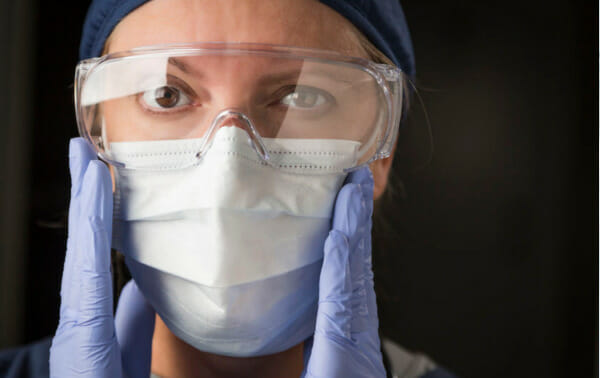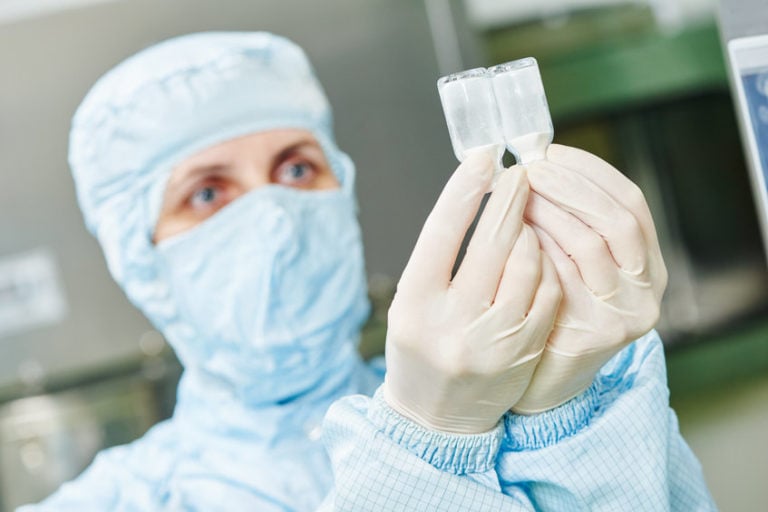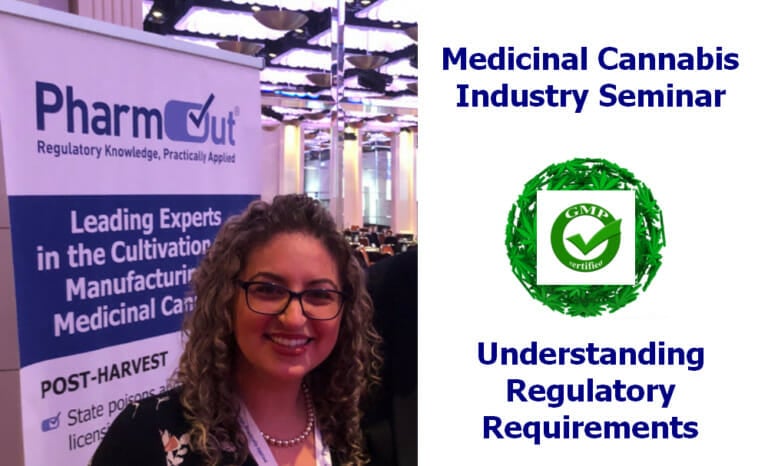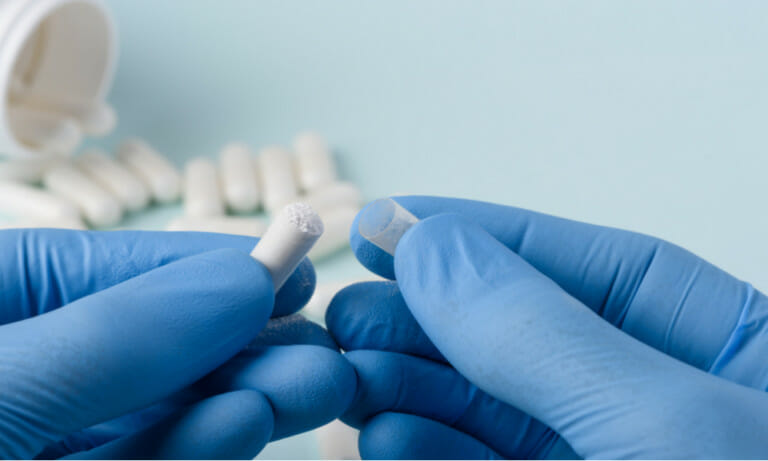Lean manufacturing and ‘just in time’ shipping strategies means medical supply chain risks are an ever-present phenomenon. But medical supply chain risks are particularly heightened during deadly pandemics, such as we’re seeing with Covid19.
Medical supply shortages leave us vulnerable to substandard products and falsified medications entering our supply chains.
If substandard or fake medical products enter our supply chains and hospitals, they will only worsen the spread of the coronavirus. If this occurs, our healthcare systems will become further devastated by increased personnel and patient morbidity rates. This will leave us even more ill-prepared to manage the disease.
Fake medicines and substandard products cost lives.
Fake medical supplies and substandard medical devices can decimate the effectiveness of evidence-based measures to contain Covid19.
- We’re already seeing some of the effects of these products in our healthcare systems, where high rates of virus spread have occurred amongst front-line care teams.
- We’re seeing this due to a combination of factors — PPE shortages, poor instructions on the proper use of PPE, and front-line workers taking desperate measures to save lives, at the risk of their own peril.
Because of these heightened risks, we must now take extra precautions, not relax them.
Get your employees up to date with certificate GMP training and refresher courses including in biologicals and pharmaceutical manufacturing fundamentals/engineering.
GMP Courses: https://www.onlinegmptraining.com/gmp-training/store/
Extra precautions to protect medical supply chains are exactly what’s required during times of:
- Immense stress
- Product shortages
- High-pressure situations
- Time-sensitive decision making
- New supply chains and distribution channels

Medical Supply Chains: Closing the Gaps
What other factors contribute to the shortage of medical supplies and supply chain risks?
Hospitals, medical device production lines, research labs: We’re seeing emotional vulnerabilities, occupational stress and time pressures take an increasing toll on medical supply chain safety and front-line worker protections.
These emotional vulnerabilities can lead to three different types of medical supply chain risks:
(a) increased likelihood of fake drugs, inferior testing kits and poor-quality masks or ventilator pieces being brought into care centres
(b) reduced rates of GMP and GLP compliance amongst personnel, resulting in quality deficits and recall risks
(c) improper handling or storage of products, leading to increased waste and reduced supply availability
Responsibility overload combined with inadequate training can lead to:
- Situational loss of GMP compliance with serious downline consequences
- Rapid redeployment of manufacturing systems without appropriate process validation and equipment qualification
- Employee burnout or acute post-traumatic stress symptoms (PTSD)
- The impact of numerous factors which impacting decision-making and ‘short-cut’ taking
With the coronavirus pandemic, a combination of influences are impacting the integrity of our medical supply chains and putting lives at risk.
At the heart of the problem is the shortage of medical devices, pharmaceutical products and PPE.
But this risk is enhanced by the complexity of our existing supply chains and the sudden surge of patients needing care in ICU.
- These increase the already-high risks of medical supply chains becoming infiltrated with:
- Counterfeit goods
- Substandard products
- Contaminated medicines
- Examples include:
- Poorly designed masks
- Contaminated medicines
- Faulty attachments
But there’s also an increased risk of existing supplies failing or becoming damaged. Examples include untrained personnel using unfamiliar medical devices, or product storage failures leading to product contamination.
But increasing medical supply production, alone, won’t negate supply chain vulnerabilities.
- Not if the medical products aren’t sufficiently quality-tested and safety-checked
- Not if products are sourced, produced, or distributed without compliance with GMP regulations
- Not if supplies are intercepted and replaced while travelling along complex distribution channels and multiple country borders
Safety, Quality and Efficacy: GMP compliance breaches and the need for training to reduce supply chain risks
- Training in GMP compliance becomes even more important during a pandemic
- Because people are stressed, sleep-deprived and under pressure
- Front-line workers are desperate for PPE and other medical supplies
- Purchasing departments, and government agencies, are all under pressure to respond rapidly
Stressed individuals make mistakes. They need to be reminded, in a timely manner, of protections they’d normally take; and how important these measures are to ensure their safety and that of others.
Because if substandard products enter our supply chains, they will contribute to much higher morbidity rates to our much-needed medical personnel.
Why GMP compliance is crucial during times of medical supply shortages such as during the COVID19 pandemic.
- Covid19 is drastically increasing global awareness of medical supply chain risks and counterfeit product vulnerabilities.
- There are simply not enough masks, ventilators, gloves, medical beds and properly-trained personnel to cope with such a rapidly-spreading virus and devastating Covid19 mortality rates.
Worldwide shortages of crucial medical supplies from gloves to masks to ventilator parts, to hand sanitizers and the very basic of supplies, has left hospital purchasing departments in a panic. But we must remain vigilant to prevent substandard supplies from entering our medical treatment centres, coronavirus testing clinics and hospitals.
How do substandard or counterfeit supplies get into supply chains?
- Sometimes the issue occurs during manufacturing such as:
- when quality tests are performed at insufficient intervals and/or poorly implemented
- when deviations are not thoroughly investigated
- when contractors or other personnel haven’t had sufficient, recent GMP training
- Typically, these supplies enter medical supply chains through lax supply chain checks (GMP and GDP audits).
- They also enter supply chains wherever there are inconsistent approaches to product quality audits.
- Poor recordkeeping practices are also a major point of entry; particularly amongst distribution channels.

The medical supply chain vulnerability that occurs during warehousing and distribution
Finished products are particularly vulnerable to diversion, tampering and theft.
During warehouse storage and distribution, we often find poorly-trained personnel who are unaware of their legal GMP and GRK compliance responsibilities.
When these teams are insufficiently trained in GMP, good recordkeeping practices, and good distribution practices, the vulnerability of the supply chain skyrockets.
This supply chain vulnerability stems from personnel being inadequately trained in GMP compliance.
They are unaware of the supply chain security precautions they need to comply with, by law, in terms of recordkeeping, signatures, supplier identification and so forth.
What changes can we expect in medical device and pharmaceutical supplies manufacturing processes relating to the spread of the coronavirus (Covid19)?
- There is a likelihood we’ll see massive changes in the industry relation to where, when – and how many – medical devices and pharmaceutical products are being produced.
- Some Governments will decide to return production to their own jurisdictions and some manufacturers will try to repurpose existing production lines to generate high quantities of the much-needed PPE products and vaccinations (once approved).
From 3D printing of masks and surgical supplies to production line changes to generate urgently needed medical supplies in relation to coronavirus outbreaks, to mass production of newly approved vaccines and other medicines, expect this industry to transform. But one thing must maintain constant for public health and safety: GMP compliance.
If designs and product testing aren’t adhering to GMP requirements — or if counterfeit goods enter supply chains — the spread of the virus will worsen, not get better.
What this means for job seekers who find their prior industry disrupted:
Engineers, Systems Designers, Quality Managers and Recruiters will ALL need to better understand the fundamentals of GMP compliance in pharmaceuticals manufacturing and medical devices production lines.
- And this training needs to begin long before someone starts a new role, and gets further on-the-job-training at their new workplaces in medical supply manufacturing and distribution.
- To help out during this time of hospital supply chain disruptions and stress, we’re releasing (early) a 4-module Pharmaceutical Manufacturing Fundamentals course.
Are you an engineer or systems designer looking for job openings? If you’re entering the Pharmaceutical or Medical Device production industry, you’ll benefit greatly from this e-learning series.
Click on the link below to learn more.
The series reviews the following:
cross-contamination risks and contamination prevention/controls, water quality and water processing, water specifications for the manufacture of biologicals and other injectable medicines/vaccinations, and HVAC system design requirements and other contamination control measures that assist with GMP compliance and product safety, quality and efficacy.
https://www.onlinegmptraining.com/product/pharmaceutical-manufacturing-fundamentals/
Last updated on September 2nd, 2022 at 01:36 pm






